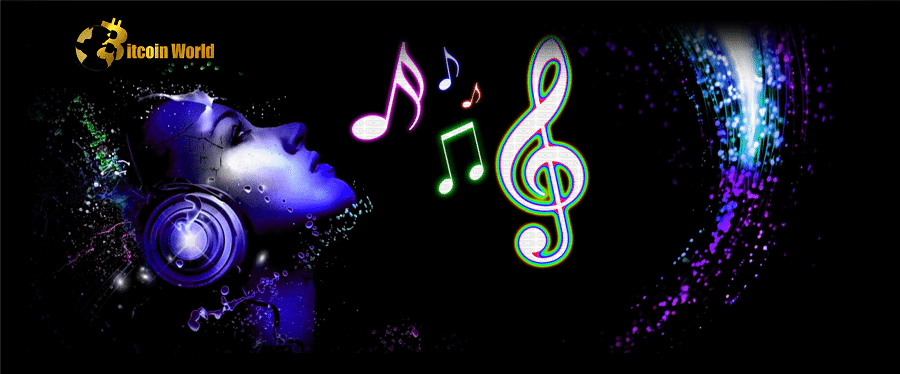What are your thoughts on the use of crypto tokens? They can be swapped, traded, or held. We rarely consider a token to be useful in the real world. The music industry was among the first to show how it could be done.
More and more musical acts, both established and emerging, are going digital by utilizing blockchain platforms or creating NFT collections.
However, it is still a long way from what we consider widespread adoption. Although the tools have evolved, the methods have not. Nonetheless, music labels, streaming platforms, and producers take the lion’s share of an artist’s earnings.
The system remains perplexing to those who generate the industry’s primary value – music. It will not work, however, until we make technology understandable to everyone and show what can be done without the use of metaphors and ambiguous language.
Still, one of the major issues in the music industry is that an artist has no control over how their music is distributed. Someone will always be unwilling to pay for, or worse, profit from, someone else’s artwork, no matter how cheap a Spotify or Apple subscription is.
The piracy problem may be solved if an artist tokenizes their song. Music that is protected by smart contracts will be less vulnerable to theft.
Listeners can still download their favorite songs, but they won’t know how to convert them into high-quality files for illegal distribution – or they’ll only be able to use them on a decentralized Web 3.0 platform that doesn’t even require an internet connection.
It will be a limited edition if a song is converted into hundreds or thousands of fractional tokens. This is another approach that can help increase fan interest, create buzz around an upcoming single or album, and thus help the artist’s music go viral.
Furthermore, special rewards such as community access, a bonus track, or even an autograph can be included in each of the song’s tokens. The money spent on these tokens could be used to fund the release of the next artist’s track.
This is a more personalized, fair, and democratic approach that turns music into a collaborative process rather than a profitable product. Fans are no longer merely purchasers or consumers. They are fans of the artist’s music.
Finally, by tokenizing their artwork, musicians gain access to an investor audience they would not have met otherwise. Musical acts have the potential to capture the attention of open-minded investors looking for new and innovative ways to use tokens – not just for transactions, but also in real life.
This method is assisting in the development of a music industry in which an artist’s well-being is no longer dependent on relationships with one or two producers and in which they do not need to record ten hits per year.














